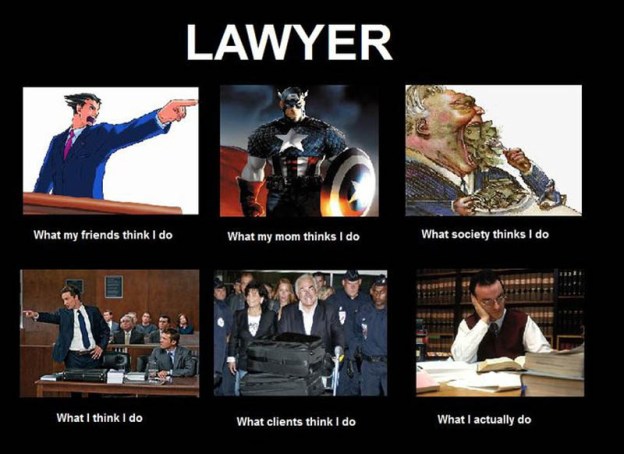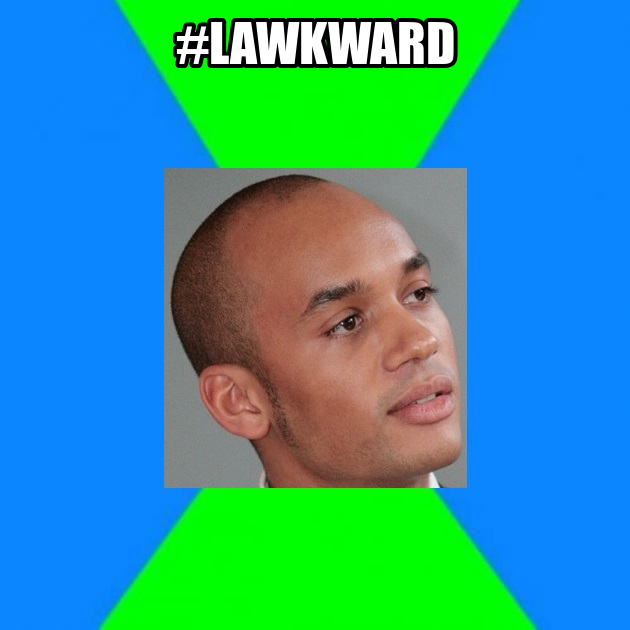In the latest instalment in the 'If I knew then what I know now' series, Norton Rose head of planning Nigel Hewitson charts his unlikely journey from local authority solicitor to City law firm partner
I never had a burning desire to be a lawyer. As a teenager I wanted to be an architect, but realising I suffered from a crushing lack of talent, I gave up on that idea. It is fair to say that the only reason I am now a lawyer is because I was in the right place at the right time – or, to put it another way, because I was very lucky indeed...
![if-i-knew2]()
I left Manchester University more years ago than I care to remember with a respectable 2:1 in philosophy and politics and got a job in committee administration at the London Borough of Harrow. I found the work easy, was apparently good at it and might have forged a career as a committee clerk had it not been for a fateful day a couple of years later.
A slightly more senior post than mine in the department came vacant. I applied and was duly interviewed. At the end of the afternoon, I received a phone call asking me to come and see the Controller of Law and Administration, Keith Gowling. Had I got the job? I was, after all, an internal candidate, which ought to give me some advantage, if only as the devil they knew! Somewhat nervously I made the short walk down the corridor to Keith's office. If it’s not too melodramatic to say so, what followed was to change my life. He told me that the job I had applied for was mine if I wanted it but would I like to consider an alternative: training to become a solicitor? This was my “Sliding Doors” moment. My life could have gone in a completely different direction at this point. But, after a nanosecond’s hesitation, I accepted his proposal.
It sounds odd to say it now, but I had little idea what was involved in qualifying to be a solicitor, let alone what a career in law might be like. Although I had noted that the Council solicitors who accompanied me to committee meetings to dispense their sage advice got more respect and a lot more money than I did while managing, as far as I could see, to do little – if any – more work. Surely, I thought in my innocence, this was a ‘no brainer’ (or equivalent 1980s vernacular). I was on the path to untold riches and an easy life!
Well, as it turned out, untold riches was overstating it somewhat. And such riches as there were to be would not arrive until many years later. In the meantime there was the small question of qualifying. Harrow generously paid my fees and a nominal salary while I did the CPE (now the Graduate Diploma in Law) and Law Society finals (now the Legal Practice Course). They also gave me a training contract (or 'Articles of Clerkship', as was the case back then). All this was incredibly generous. Nevertheless, those four years were financially a struggle. I was earning much less money than I had as a committee clerk – particularly for my two years of study – but still had the same rent to pay. As for my easy life theory: as anyone who has been through them will testify, the Law Society finals were no walk in the park. Just to survive – let alone pass – nine or ten exams in six working days is a feat in itself. While my subsequent life in legal practice has never been quite as tough as those exams, I learned the hard way that solicitors do work hard and often for very long hours. Had I properly understood all that, I might have made a different decision all those years ago.
Nevertheless, qualify I did and I proudly took up the post of ‘Solicitor (Planning)’ at Harrow. The rest, as they say, is history. I began climbing the ladder, gaining promotions at key points in my career. Sometimes I feel as if my entire career has been a matter of being in the right place at the right time, but I guess, to an extent, you make your own luck. I worked hard and was always ready to go the extra mile to help out and make sure the work got done. Good work came my way – public inquiries, compulsory purchase orders, you name it. Whatever the reason, it seems that, just as I was ready for it, the next job came up. By the time I was in my mid-30s I gloried in the title 'Property Services Solicitor' – only one promotion below 'Borough Solicitor' – and found myself managing a team of eight lawyers.
Then came my big break. English Heritage was looking for a new legal director and their head hunter rang me! I had recently done a very interesting listed building enforcement case that had received some publicity, which may have stood me in good stead. I was duly interviewed – by quite a daunting panel I might add. But I got the job – and what a job! Suddenly I was a national player. People in the sector wanted to know me. The work itself was fantastic: the Stonehenge tunnel proposals public inquiry; major public inquiries in London (such as Heron Tower, the Shard and Potters Fields). I was asked to speak at conferences and, for the first time, had articles published in the professional press
But all good things come to an end. After five fantastic years at English Heritage, it felt like time to move on. The only upward move in the public sector would take me into pure management (I had picked up an MBA along the way) and away from the practice of planning law, which is what I loved – and still love – doing. I concluded that the one challenge left was private practice. I spoke to an agent and he put out feelers for me. Howard Kennedy were looking for their first planning lawyer and I turned out to be it. I spent a fantastic year at Howard Kennedy and made friends there I still see today, six years later.
I had only been at Howard Kennedy a few months when the head hunters came knocking again – this time on behalf of Norton Rose, who were looking for a senior planning lawyer with a view to partnership. Serendipitously, Norton Rose had been one of the firms on the English Heritage panel so I knew a lot of the partners, particularly in real estate where the post was to be based. Again, right place at the right time, but it felt like it was meant to be. How could I not join? Three years later they made me up to partner and here I am!
To quote Frank Sinatra: "Regrets, I’ve had a few, but, then again, too few to mention." I have been fortunate enough to have had a long and varied career, and still thoroughly enjoy being a lawyer and practising in my chosen area of planning law. Like any job, mine has its ups and downs, but the downs are outnumbered and more than outweighed by the ups.
All in all, then, do I regret accepting Keith's proposal that I become a lawyer all those years ago? Not on your nelly. I am professionally fulfilled, financially well-rewarded and respected by my peers. And three out of three, as they say, ain’t bad! To any aspiring young lawyers out there, my advice is to never give up. Get a job wherever you can, work hard, show willing and you never know when your opportunity might present itself. To Keith, if you’re reading this, thank you. I hope I’ve repaid your faith in me!
Nigel Hewitson is a partner and head of planning at City law firm Norton Rose.
He tweets at @NigelHewitsonNR.





























